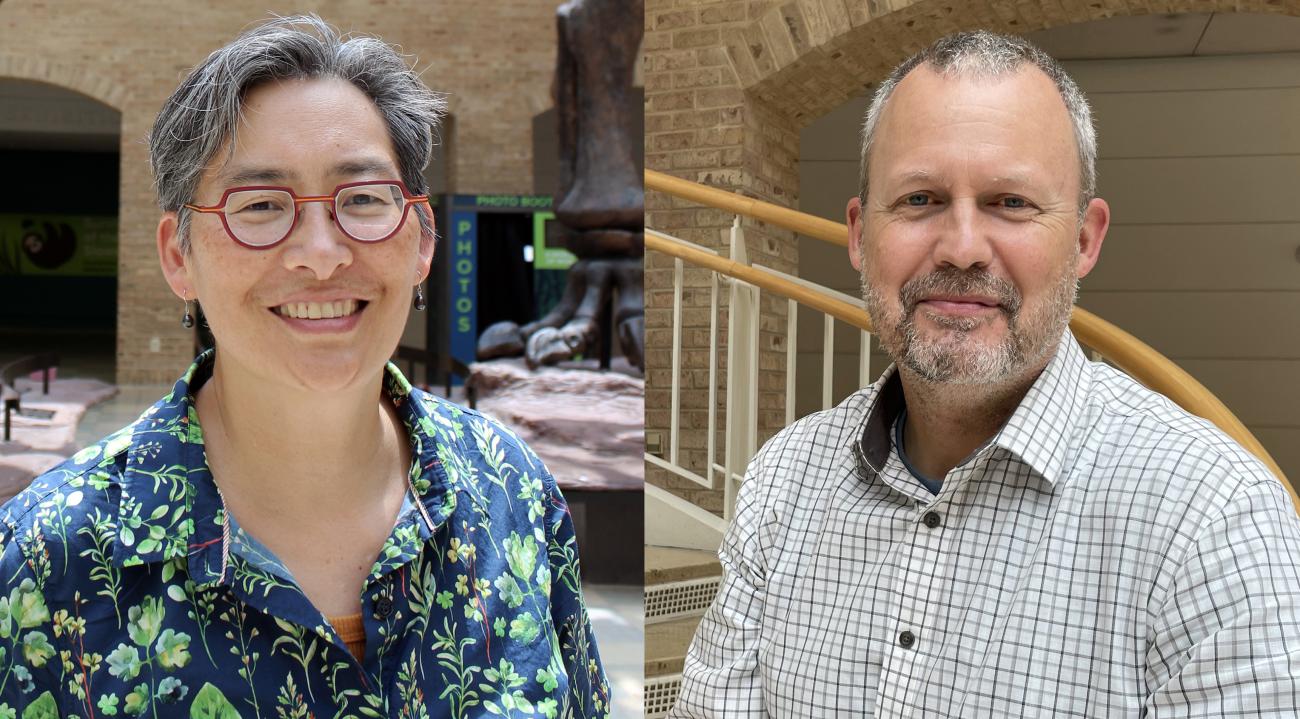2024-2026 Grants Focus on Systems and Circuit Level Approaches to Parkinson’s Disease
The first outward signs of Parkinson’s disease are often subtle — a tremor in the hands, a gradual slowness of gait. But Parkinson’s roots are deep, and patients experience cognitive changes, like memory and attention issues; and sensory deficits, such as problems with touch or vision.
“A better understanding of these early non-motor symptoms would help clear the path to earlier diagnosis and better treatment strategies,” said Garrett Stanley, director of the McCamish Parkinson’s Disease Innovation Program at Georgia Tech. “The ability to detect Parkinson’s before movement symptoms surface could lead to interventions that slow disease progression.”
With that in mind, the McCamish Blue Sky Research Program is shifting its aim for the 2024-2026 grant period, supporting two teams that will split the $600,000 grant and focus on a big picture theme, “Disentangling Movement, Sensation, and Cognition in Parkinson’s Disease Through Measurement, Manipulation, and Machine Learning.”
Launched in 2021, the early-stage grant program initially cast a wide net, to bring new investigators into the field, building a larger research community.
“In our first phase we solicited ideas from across the Georgia Tech and Emory communities and funded a wide range of projects. That gave us a chance to see what was out there, and to encourage researchers who were not doing Parkinson’s research to bring their ideas, technologies, and talents into this important area,” said Stanley, McCamish Foundation Distinguished Chair and professor in the Wallace H. Coulter Department of Biomedical Engineering at Georgia Tech and Emory.
“Now we’re moving into a new phase, where we’re focusing on some of the strengths in the community and building up an area of research that can be sustainable for many years to come,” he added. “We observed some clear and unique strengths at the Systems and Circuits levels of investigation, and it was very natural to invest in those areas.”
Accordingly, this next round of Blue Sky research grants will support one team analyzing the “Systems” level, and another focused on “Circuits.”
Systems and Circuits
The two research teams represent different “scales” of studying Parkinson’s disease, according to Stanley. Each team is divided into sub-teams, with each lab focusing on different aspects of Systems or Circuits.
“This kind of division of labor allows us to have areas of deep specialization, which is crucial for studying something as complex as the brain,” Stanley said.
The Systems team will be led by Lena Ting, professor in Coulter BME and a McCamish Foundation Distinguished Chair. Her group will focus on humans with Parkinson’s disease, paying attention to movement, balance, and cognitive function. The sub-teams are led by principal investigators Michael Borich, Svjetlana Miocinovic, and J. Lucas McKay.
Stanley is leading the Circuits team, which will explore the neural wiring that controls movement, cognition, and sensation, using animal models to map the underlying biological mechanisms of Parkinson’s. Stanley and the other principal investigators — Annabelle Singer, Bilal Haider, and Jeffrey Markowitz — will offer insights into how specific brain circuits are involved in both motor and non-motor symptoms of Parkinson’s and other details that can’t be measured directly in humans.
“So, the two teams approach the same problem from different angles, and at different levels,” Stanley said. “Importantly, though, we’ll work closely together, share findings, brainstorm, and enable the findings at one level to influence investigation at the other.”
Connecting the Dots
With several labs tackling different aspects of Systems or Circuits, the teams are better positioned to take on the multifaceted nature of Parkinson’s disease. The research teams’ range of expertise is crucial for addressing both the scientific and programmatic goals of the McCamish Blue Sky Program.
The scientific goal involves measuring and manipulating brain regions involved in Parkinson’s disease, characterizing the disease's motor and non-motor aspects, with an ultimate goal of improving treatment options. From a programmatic standpoint, the collaboration of these two teams can help secure federal funding for future research.
“By having research focused on both humans and on animal models of disease, we can start to bridge the disconnect between these two very different styles of research in Parkinson’s disease,” Stanley said.
Helping them connect all the dots are what Stanley described as, “an explosion of tools,” for measuring brain activity and behavior.
“Our researchers are better equipped to connect the dots between the symptoms of Parkinson’s,” he said.
Both of the Blue Sky teams will use machine learning techniques to analyze the massive amounts of data they expect to collect, making it possible to identify and connect subtle patterns of the disease.
“We’re setting the stage for making significant progress in this area and we’ve assembled the teams across Georgia Tech and Emory to do just this,” Stanley said. “These advances in AI are critical for understanding how the brain’s circuits work together to control movement, sensation, and cognition — and how these circuits malfunction in Parkinson’s disease.”
Latest BME News
Jo honored for his impact on science and mentorship
The department rises to the top in biomedical engineering programs for undergraduate education.
Commercialization program in Coulter BME announces project teams who will receive support to get their research to market.
Courses in the Wallace H. Coulter Department of Biomedical Engineering are being reformatted to incorporate AI and machine learning so students are prepared for a data-driven biotech sector.
Influenced by her mother's journey in engineering, Sriya Surapaneni hopes to inspire other young women in the field.
Coulter BME Professor Earns Tenure, Eyes Future of Innovation in Health and Medicine
The grant will fund the development of cutting-edge technology that could detect colorectal cancer through a simple breath test
The surgical support device landed Coulter BME its 4th consecutive win for the College of Engineering competition.








